I was reading this page - http://deaduseful.com/blog/posts/50-php-optimisation-tips-revisited
And one of the recommendations was to avoid using Magic Methods, cited from a Zend Performance PDF which gives no reason for its recommendation to avoid them.
After some Google searching (and winding up here to an unrelated question) I wondered if anyone had any reccomendations on that front?
I use __get() alot in my code, usually to save variables that I don't always use e.g.
I may have a table with name, desc, category_id, time_added
My get would look something like this:
public function __get($name) {
switch($name) {
case 'name':
case 'desc':
case 'category':
case 'time_added':
$result = do_mysql_query();
$this->name = $result['name'];
$this->desc = $result['desc'];
$this->category = $result['category'];
$this->time_added = $result['time_added'];
return $this->{$name};
break;
default:
throw Exception("Attempted to access non existant or private property - ".$name);
}
}
This seems like a great way to do things as I only ever get something from the database if it's needed and I can refence things like $article->time_added rather than fiddling around with arrays.
Would this be considered bad practice and an extra load on the server?
Often I will extend classes with magic methods and do something like this if the child class doesn't match something in a get.
public function __get($name) {
switch($name) {
case 'name':
case 'desc':
case 'category':
case 'time_added':
$result = do_mysql_query();
$this->name = $result['name'];
$this->desc = $result['desc'];
$this->category = $result['category'];
$this->time_added = $result['time_added'];
return $this->{$name};
break;
default:
return parent::__get($name);
}
}
Would this be bad practice and bad for performance? The maximum number of levels I have when extending magic methods is three.
